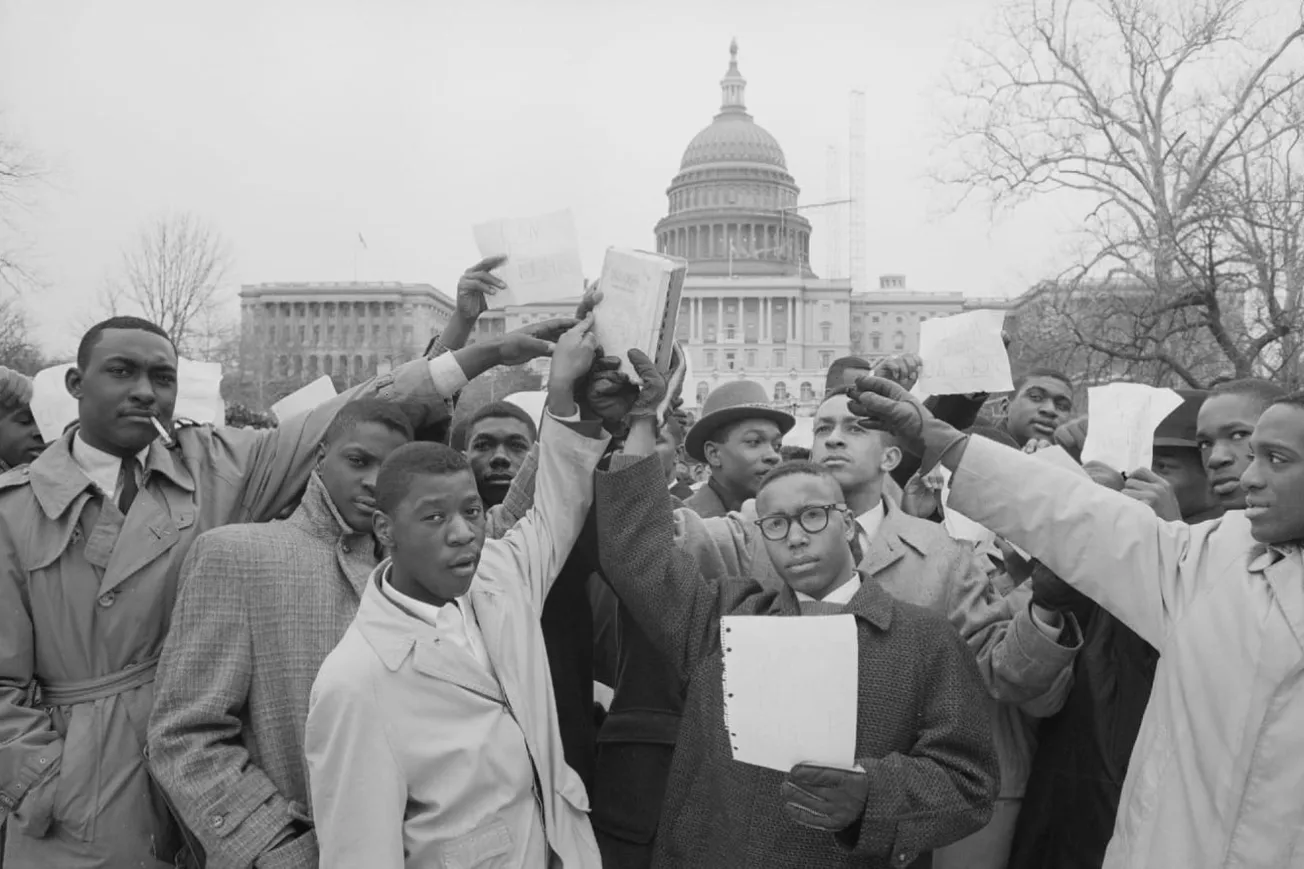- Americans worry about Christmas expenses, especially the younger age groups
- Many plan to spend less on Christmas this year
- They believe Christmas has become too commercialized
Winter is here, and almost everyone is looking forward to the biggest holiday and celebration of the year—Christmas. A TIPP Poll of 1,464 Americans completed last Friday confirms that anticipation and enthusiasm are running high as the holidays approach.
The survey asked Americans the extent to which they agree or disagree with the statement: 'I am looking forward to Christmas.'
Over two-thirds (69%) agreed they are looking forward to Christmas, while 26% disagreed. Among those who agreed, 34% agreed strongly, and another 35% agreed somewhat. Those who disagreed were evenly split between those who disagreed somewhat (13%) and those who disagreed strongly (13%).
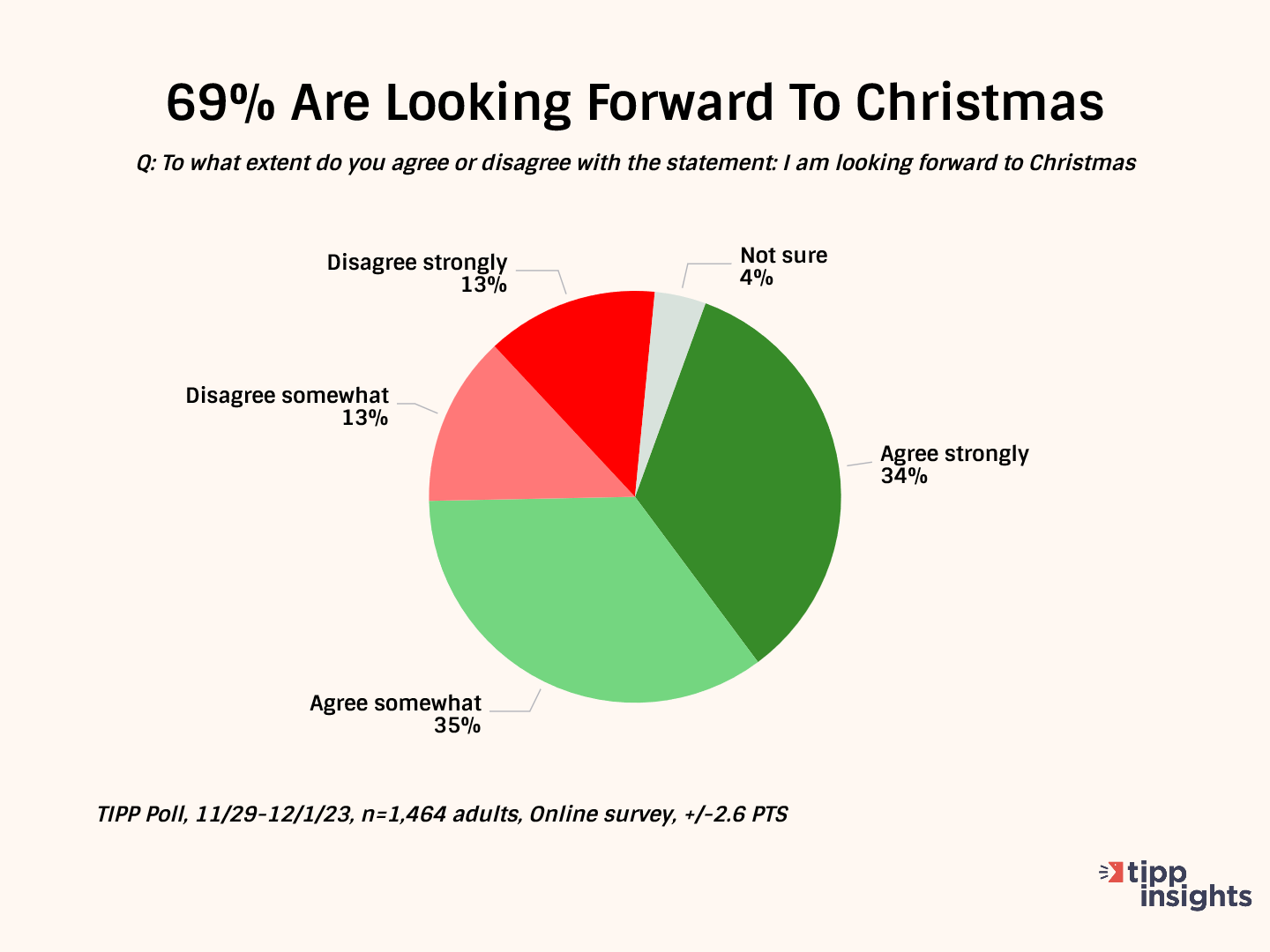
The data shows that anticipation grows with income. Anticipation levels were 64% for those earning under $30K and 63% for the $30K-$50K income groups. However, it increased to 72% for the $50K-$75K bracket, peaking at 80% for those making $75K or more.
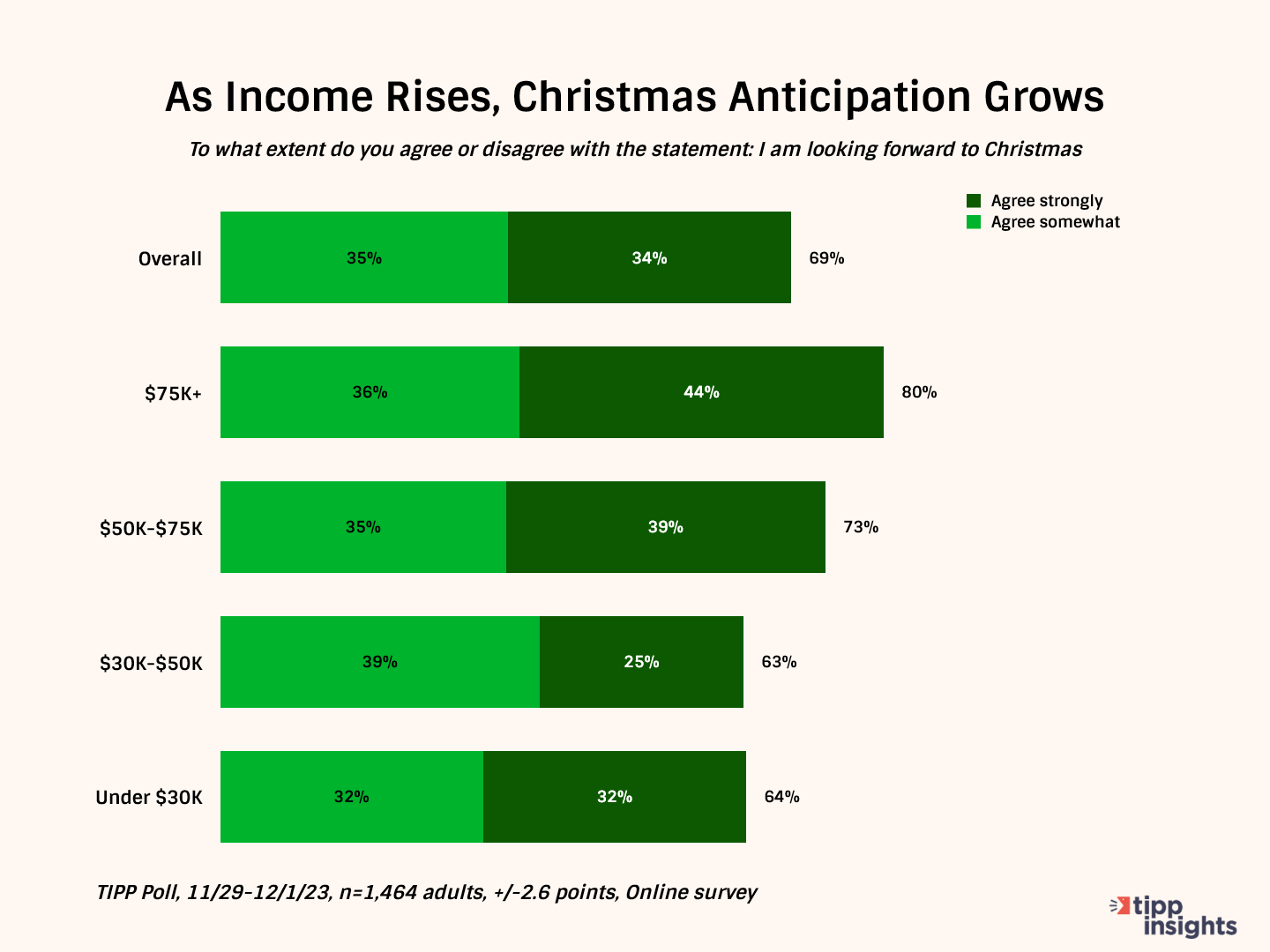
Concerns About Christmas Expenses
While Americans look forward to Christmas festivities, most are also concerned about Christmas expenses. The survey asked respondents to state their agreement or disagreement with the statement: I worry about how much Christmas will cost.
Nearly two-thirds (63%) agreed that they worry about Christmas costs – with 31% agreeing strongly and 32% agreeing somewhat.
Roughly a third (32%) disagreed, indicating expenses are not a concern for them.
Notably, the same shares of Democrats and Republicans (64%) are concerned, while 62% of independents expressed concern.
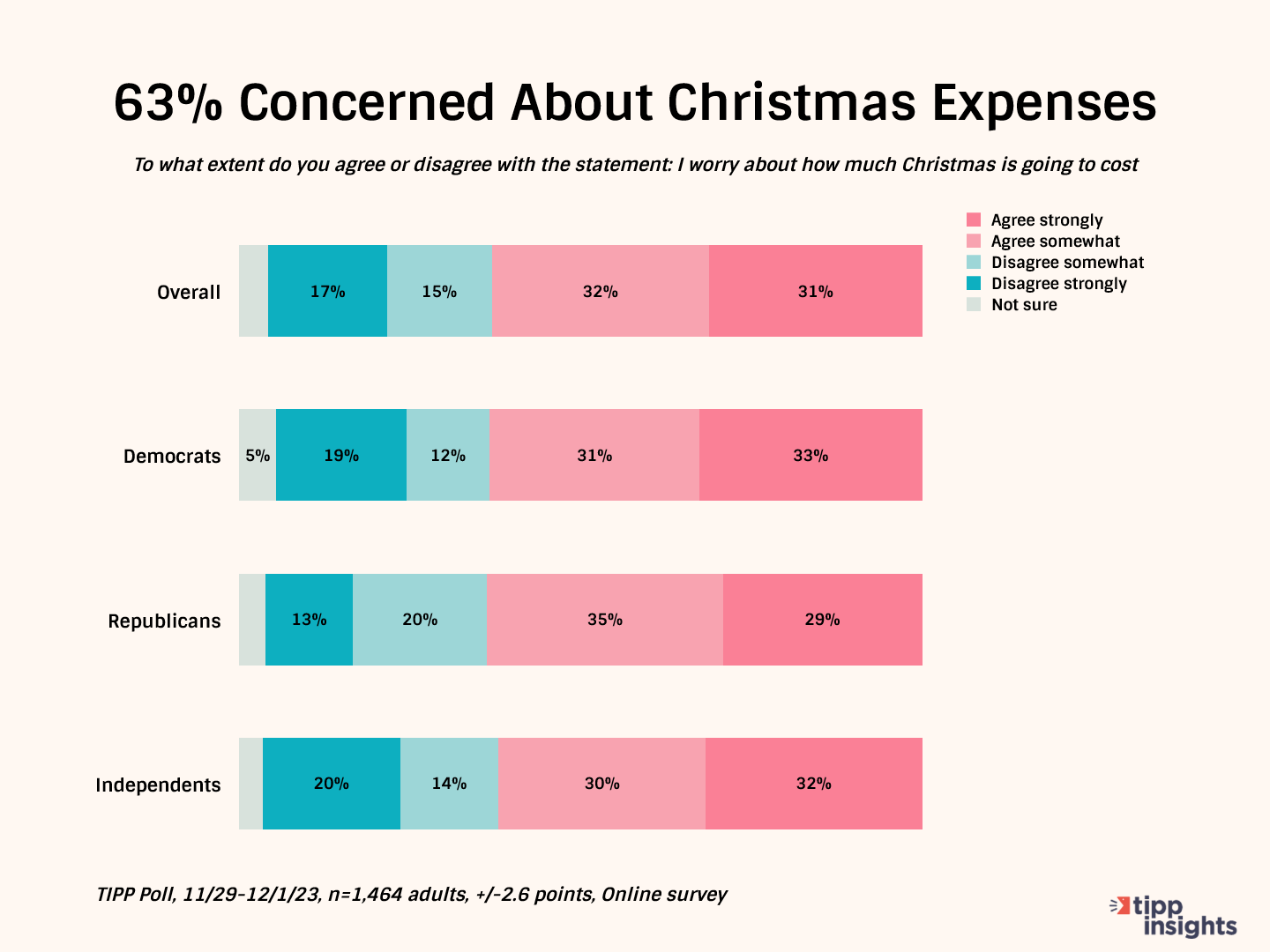
Worrying about Christmas expenses decreases with age. Eight in ten people in the 18–24 age group are worried. It drops to 72% for the 25–44 group, declining to 59% for the 45–64 group. It further dropped to 46% for the 65+ age group.
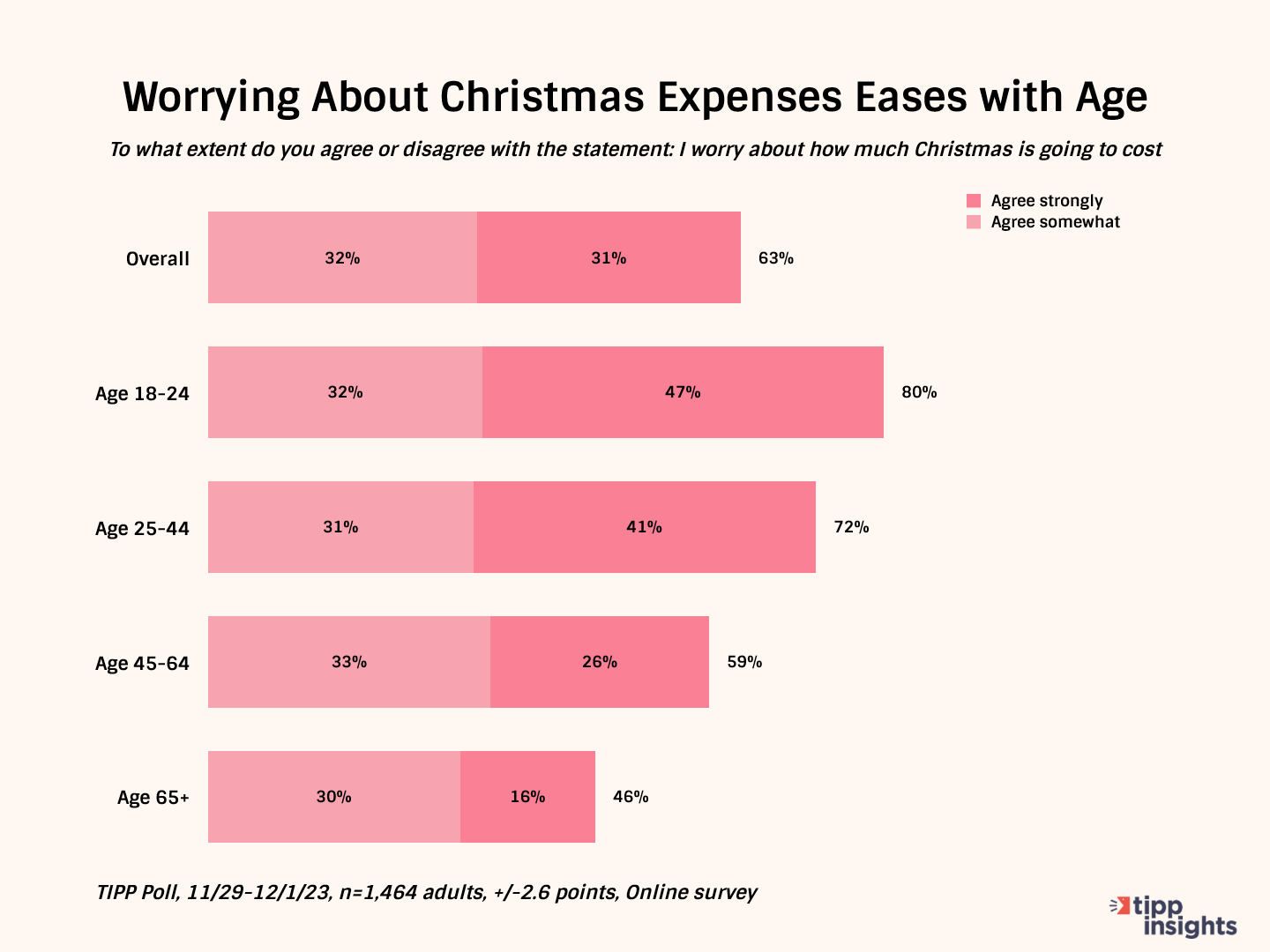
The worries are reflected in spending intentions. Compared to recent years, for every person who plans to spend more, two people plan to spend less, and about a third (34%) plan to maintain their usual spending.
42% plan to spend less, with 25% significantly less and another 17% somewhat less.
20% intend to spend more, with 8% significantly more and another 12% somewhat more.
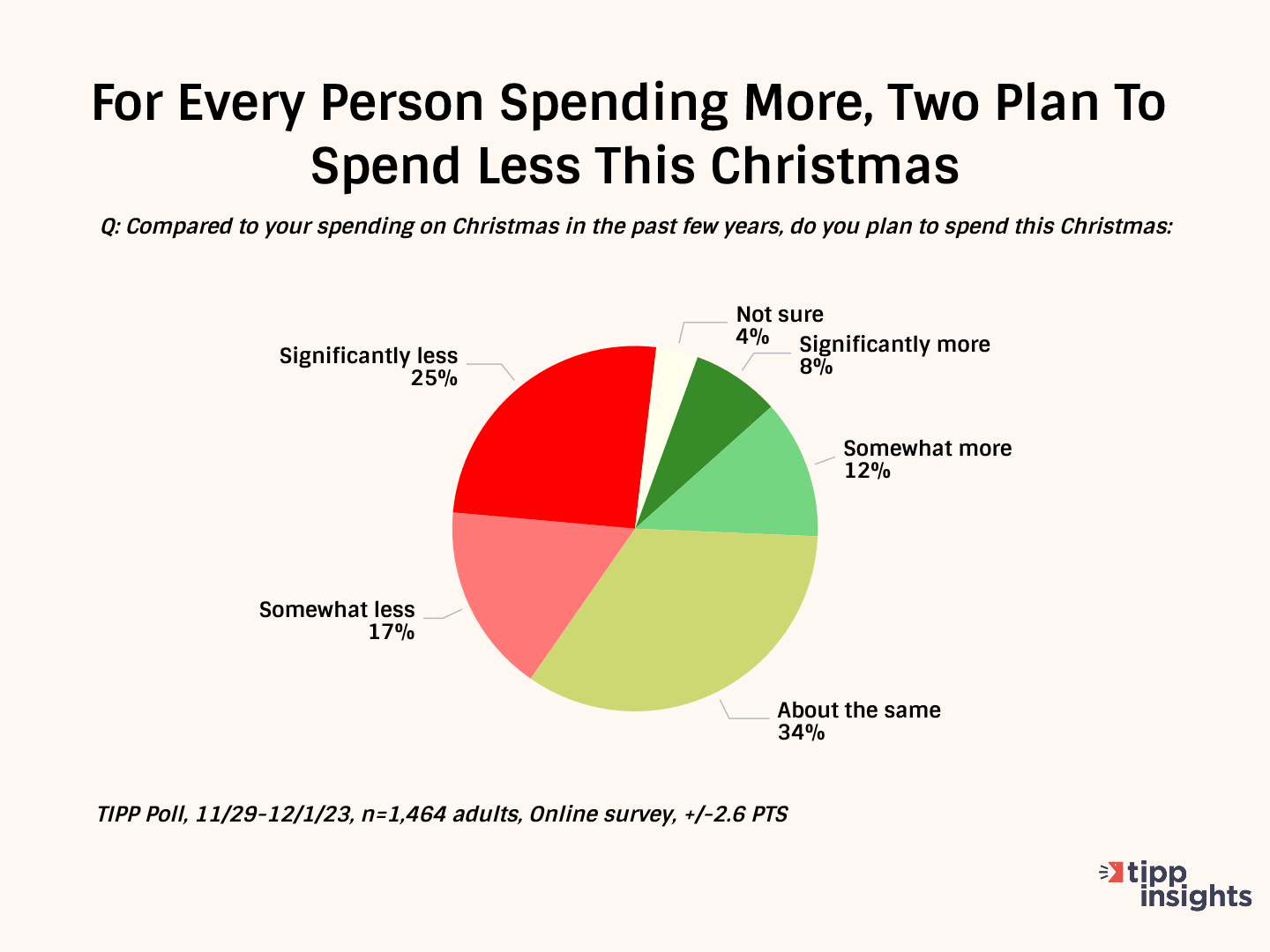
Americans Vs. Britons
The same questions were originally included in a recent Ipsos survey of Britons. Anticipation among Americans (69%) closely mirrors that of Britons (70%). However, more Americans (63%) express financial concerns than Britons (44%), resulting in a notable 19-point difference.
Favorite Christmas Gifts
Christmas, the “season of giving,” invariably means detailed shopping lists and hunting for perfect gifts. What to buy and what to give are dilemmas that many grapple with. The countless articles about “the best” or the “top 5 or 10 or 12” gifts for everyone, from the newest addition to the family to the difficult boss, only add to the pressure and confusion.
A recent exclusive TIPP Poll for Newsmax magazine asked Americans to pick their top five Christmas gift preferences for this holiday season. Although there is marked variance in the percentages, men and women largely expressed preferences for similar items.
The top gifts men would like to receive are electronics, gift cards, and tech gadgets.
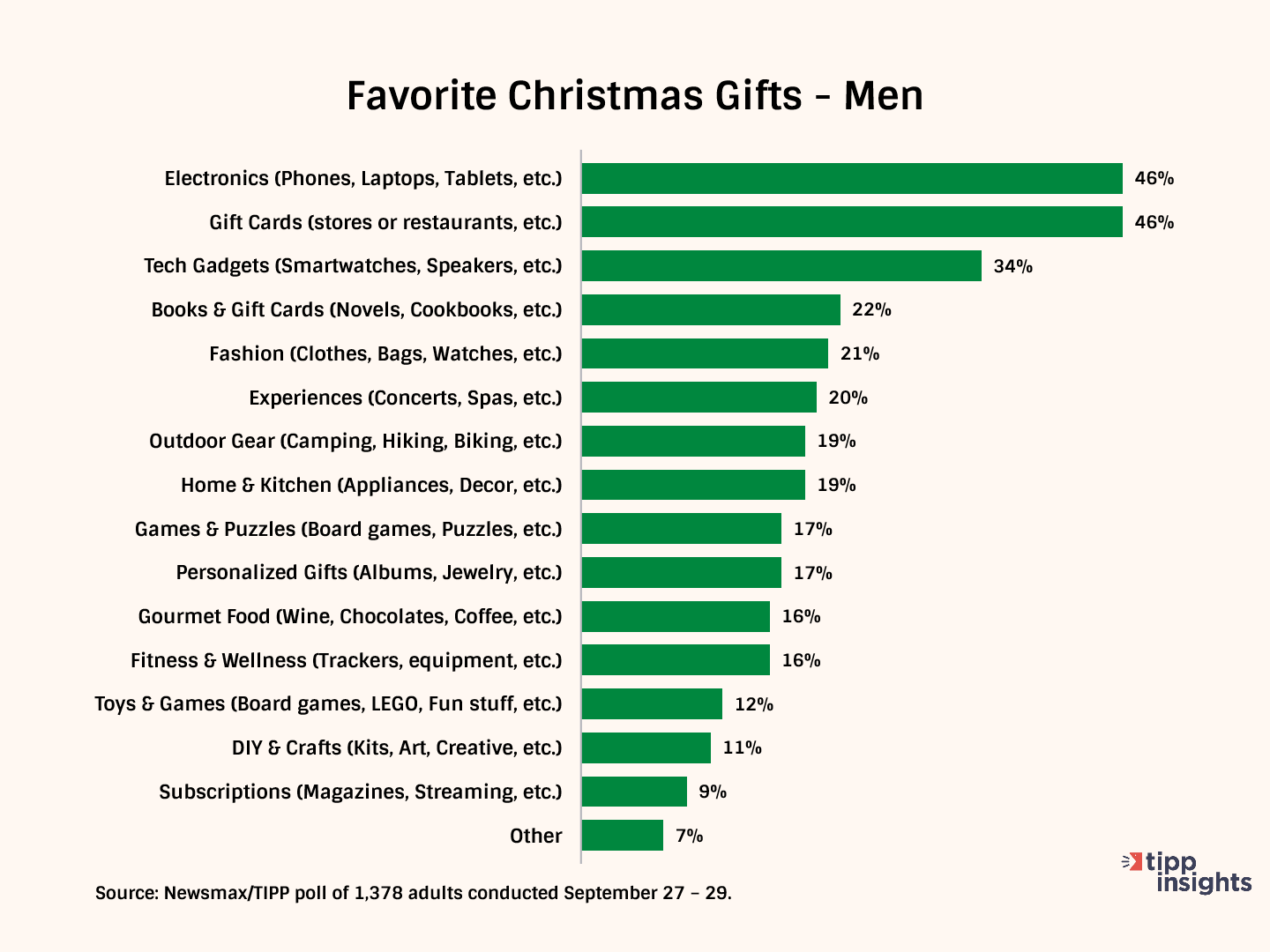
The top gifts women like to receive are gift cards (64%), fashion items (35%), and experiences such as concerts and spas (31%).
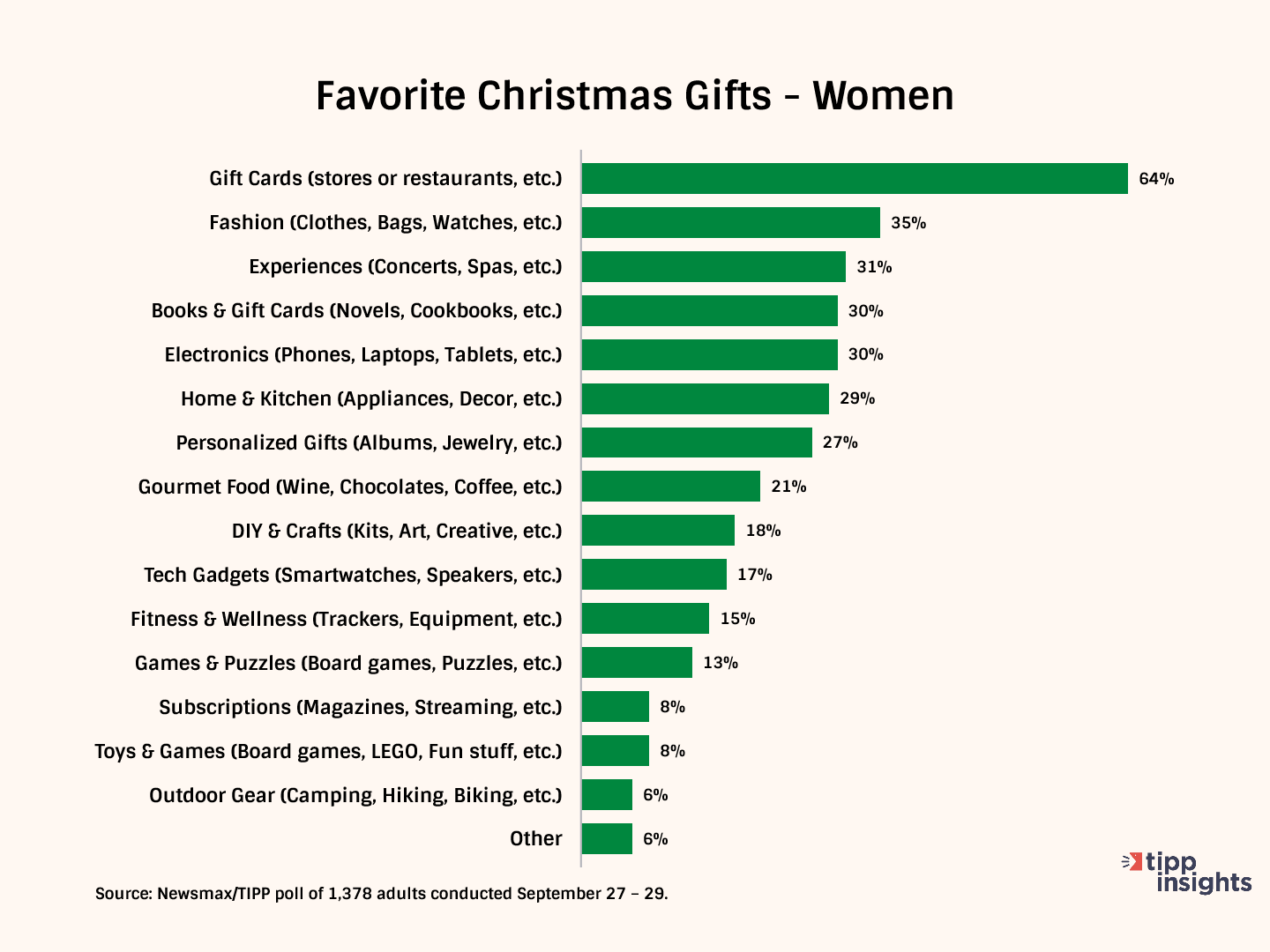
Commercial Angle
Retailers and e-commerce platforms cash in on the holiday frenzy, announcing special holiday sales, promotions, and discounts, spurring one to spend more and more. The excessively materialistic nature of today’s festivities has left many Americans fearing that Christmas has become too commercialized, overriding the atmosphere of love, compassion, and togetherness that the festival is intended to foster.
Eight out of ten agreed that “Christmas has become too commercialized and has lost its religious significance.” Less than a fifth disagreed, and 5% were unsure. The apprehension is prevalent across people of various ideologies, with 88% of conservatives, 79% of moderates, and 67% of liberals concurring with the sentiment.
While the commercial aspect of Christmas garners much attention, other facets of the festival also present a nuanced view of the times.
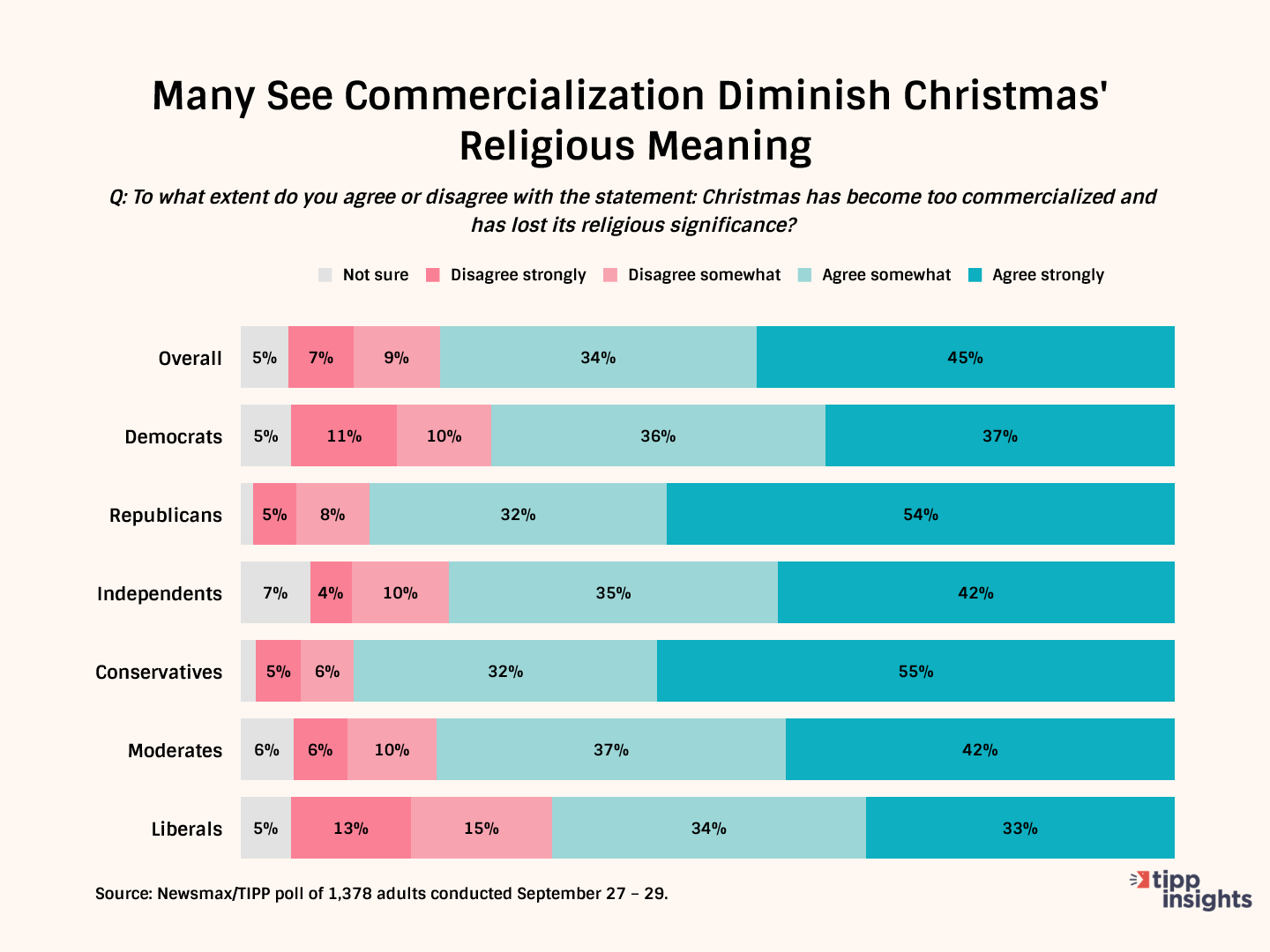
Political Correctness
According to some estimates, the vast majority of Americans—nearly nine in ten—celebrate Christmas. Though the greeting card industry has lost some of its sheen with the advent of messaging apps and social media platforms, Christmas greeting choices have been scrutinized in recent years.
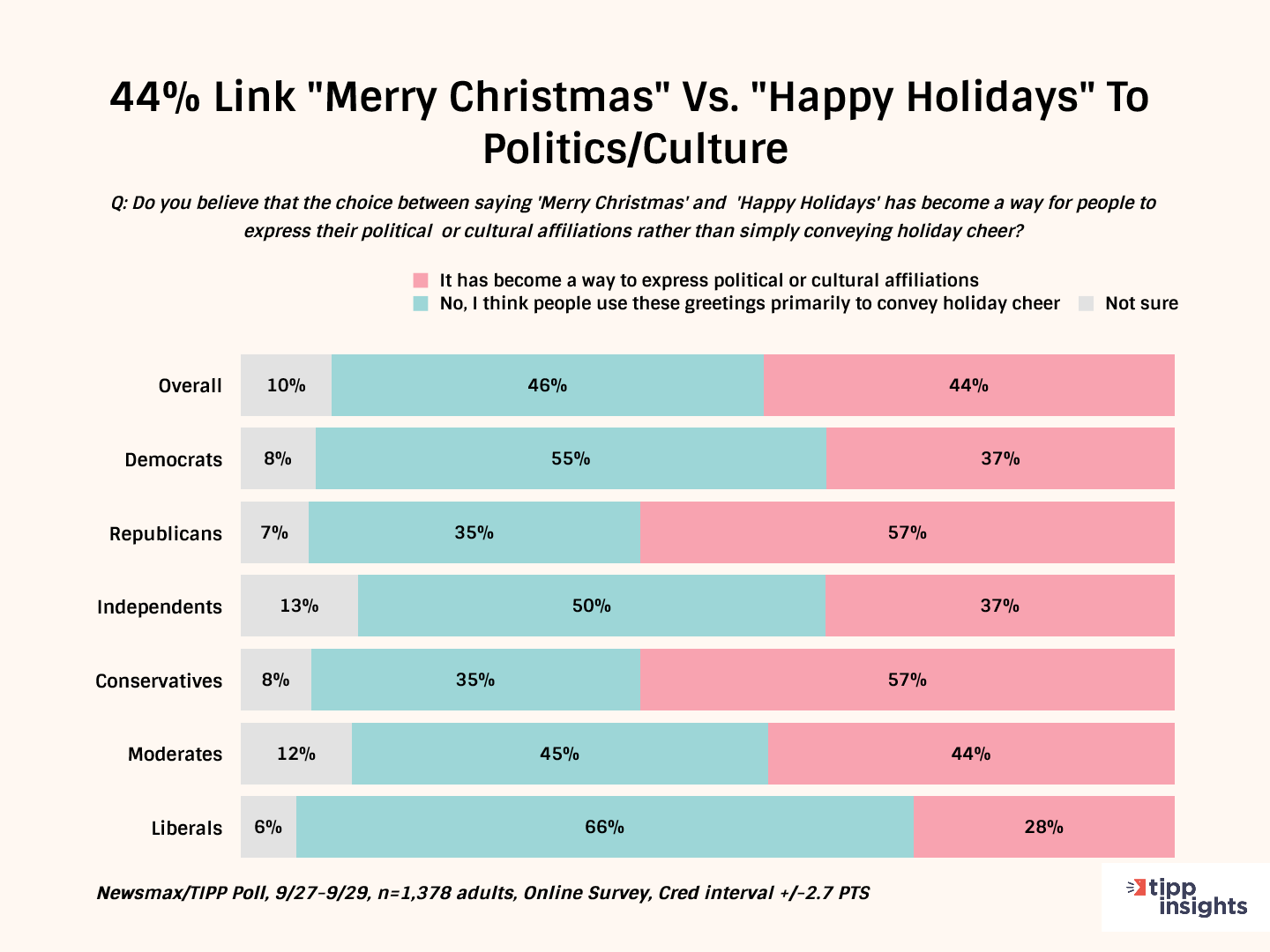
The Newsmax/TIPP Poll asked respondents, "Do you believe that the choice between saying 'Merry Christmas' and 'Happy Holidays' has become a way for people to express their political or cultural affiliations rather than simply conveying holiday cheer?"
The close results showed that 44% believed it had become a way to express political or cultural affiliations, and another 46% thought people primarily use these greetings to convey holiday cheer. 10% were not sure.
In these uncertain times, everyone is looking forward to Christmas. Retailers and businesses hope festivities and celebrations will loosen purse strings despite inflationary pressures. A polarized society hopes the season's true spirit will build bridges and heal wounds that have torn America apart.
We could use your help. Support our independent journalism with your paid subscription to keep our mission going.






